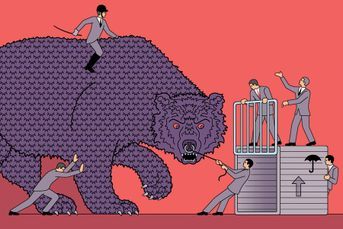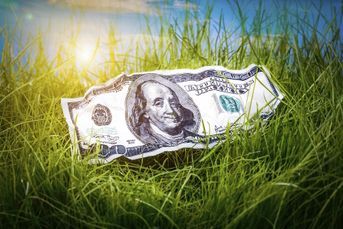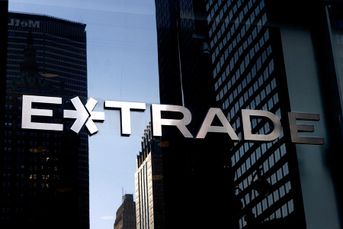European stocks far cheaper than US stocks
Political worries, debt woes weighs heavy.
If you’re looking for cheap stocks, Europe is the place to go, says Bank of America Merrill Lynch. But political and sovereign debt risks are one reason Europe is so cheap.
In a paper released Thursday, titled “Europe vs. U.S.: The earnings comeback,” Bank of America Merrill Lynch notes that U.S. stocks are at a 40-year relative high in earnings to Europe. Currently, the MSCI Europe index trades for about 14.7 times forward earnings, versus 17.8 for the MSCI USA index. Eurostocks are 39% cheaper on a price-to-book basis. Looked at from its own 30-year historical levels, European PE levels are 7% lower than normal, and price-to-book is 17% cheaper.
“There are definitely periods, such as right now, and particularly in price-to-book, where you see screaming differences in valuations,” said Jill Carey Hall, equity and quant analyst at Bank of America Merrill Lynch, and one of the co-authors of the research paper.
On the one hand, European stocks have almost always been cheaper than their U.S. counterparts, because European companies have grown more slowly than U.S. companies. For example, European corporate profits have lagged the U.S. by 0.76 percentage points a year since 2009. U.S. profit margins are currently at all-time highs. That has been reflected in stock prices: The U.S. has outperformed Europe by 105% since 2008 in U.S. dollar terms.
From that perspective, European stocks are deservedly cheaper than U.S. stocks. “Even though Europe’s normalized PE vs. the U.S. is 17% less expensive than its historical average, European EPS, ROE and profit margins are all sub-trend,” the paper’s authors argue.
But earnings momentum may favor Europe going forward: It’s going to be tough for U.S. companies to increase their profit margins, particularly if wages increase, as many economists expect. Furthermore, the European earnings cycle seems to be turning positive. “Earnings are now rising relative to the U.S. and we expect double-digit EPS growth in 2017,” the authors said.
The bete noir of European earnings: Politics. If the Eurozone disintegrated, for example, valuations could get yet cheaper. The French will vote on a new president in April and May and, following the vote in the United Kingdom to leave the EU, investors are understandably nervous. Emmanuel Marcon, the current front-runner, is running on a “For France” platform, much like President Trump’s “America First” platform. And far-right leader Marine Le Pen, while in third place currently, cannot be ruled out. “A period of sustained outperformance from Europe will be dependent on a benign outcome to the political risk events in 2017,” the paper’s authors wrote.
Worries about sovereign debt, particularly in Italy and Greece, are likely to make the European markets jittery. However, should European growth rebound, those worries could deflate somewhat, the authors suggest. The paper says that 4% nominal growth or more in Europe is possible.
Ms. Hall noted that, as in the U.S., sector choices in Europe will make a big difference. “We think the financials are attractive in both regions,” Ms. Hall said. “Both are depressed, and in the U.S., deregulation should help.”
Learn more about reprints and licensing for this article.








